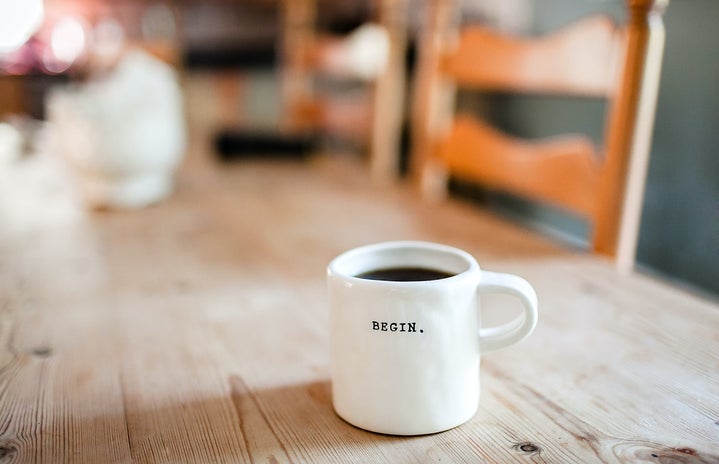We’re back with another themed week on the site: Career Week. This semester, Her Campus FSU has created themed weeks dedicated to exclusive content we believe all of our readers should have access to. Keep up on the site for the next few days as we cover everything from what NOT to put on your resume to a Q&A with an RMPD major currently interning at ELLE magazine in NYC. This week definitely won’t be filled with the cliché career advice you’re always hearing (take for instance there’s even a piece on how to deal with rejection). Don’t miss out!
When it comes to landing the job you want, first impressions are everything! Make sure you arrive to your interview prepared and ready to answer any questions that may come your way. Here’s what you need to bring to an interview to show why you are the best candidate for the job:
1. Résumé copies
It never hurts to print out a copy for yourself and for each person you’re interviewing with. Make sure the résumé you bring is the version you’ve customized for this company and position. It’s important to bring enough copies so that you and every interviewer can have their own. It’ll show that you’re organized and prepared!
2. A couple of pens
This shows that you came very prepared for the interview and that you thought ahead. You may not be the only one in need of a writing utensil. If the manager who’s hiring you suddenly needs a pen, think of how much they’ll appreciate you providing one for them.
3. A notepad/notebook
Make sure to bring a plain, professional notebook. You’ll most likely need to write down tons of important information like phone numbers, addresses, names and other important information about the job. It’s all about being ready and standing out from the other candidates.
4. References
Think of three people who can attest to your ability to do a great job in the position you are applying for. By the way, these people should not be related to you! You should tell your references ahead of time that they might be contacted and they should be able to speak to the hiring manager in case he or she does call them. Once you’ve thought of the people you will add as references, type up their full name, phone number and their relationship to you. Print out this list and bring one copy for each person you are interviewing with.
5. Questions
You should always ask questions in your interview! Think of a few questions you’d like to ask the hiring manager about the position and write them down so you’ll remember to ask them. Asking questions will give you insight into the position you’re applying for and give depth to your interest and understanding of the job. However, do not ask, “How much does this position pay?” Wait until the hiring manager brings it up.
6. Examples of your work
You never know when an employer might want to actually see examples of the work you mentioned in the interview. Try to bring just a few simple examples that you could share and store. You should offer these when they ask for them, or when you get the perfect opportunity to work them into the conversation. Once again, it shows preparedness and sets you apart from others who may not have gone the extra mile to bring in samples of their work. This is particularly important in jobs that involve designing and creating new material—instead of telling them how great you are, show them!
7. Folder/briefcase
Putting all the papers listed above in one folder or briefcase will ensure that you won’t leave anything out by accident. More organization never hurt anybody.
8. Directions and contact information
Make sure you have the directions in hand as you’re heading to the interview. You don’t want to get lost, because getting lost could make you late and being late could cost you the job. On the top of the directions, write down the name and contact information of the person you’re interviewing with. You want to be sure you can get in touch with them should anything go wrong.
9. Professional attire
Make sure to dress for success! Your hair, makeup, jewelry, attire and shoes should be sending the right message (tailored to the specific job position and environment) and always be as professional as possible. Jewelry and makeup should be kept to a minimum. Don’t wear anything over-the-top, unless that’s the vibe you want to give off for the job. The focus should be on you and what you have to say, but every company is different—do some research into the work environment and work from there. Here’s a guide on what to wear and not to wear for an interview.
10. Enthusiasm
Companies like to hire individuals who are enthusiastic about the idea of working for their firm or company. Bring your best smile and an energetic attitude. There’s nothing worse for an interviewer than to feel like their interviewee only wants something to pay the bills. Passion is key and is an indicator of someone who will take initiative, work hard and bring something new to the table.
11. Follow up with a memorable “thank you”
Your interviewer may have interviewed dozens of other candidates, so a follow-up email or letter will remind them of who you are. Make sure to personalize the email and bring up something you really enjoyed talking about or maybe something that makes you unique. And don’t forget to thank them for their time! You’d be surprised how much this can help with getting the job.
Courtesy: Best Animations
You got this, Collegiettes!


